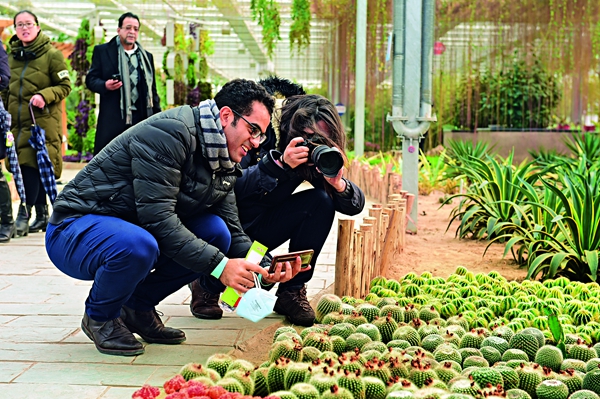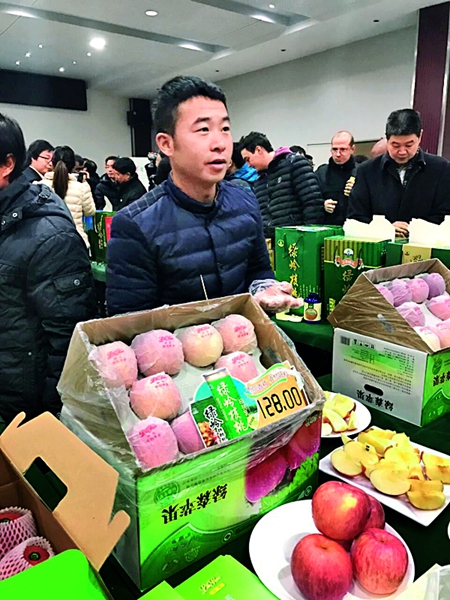China Explores New Paths to Poverty Eradication
China Today, June 13, 2017 Adjust font size:
What does being “poor” actually mean, especially in a country like China where there is a growing gap between the incomes of the rich and poor? And how may China and other developing countries successfully overcome poverty in a long-term and sustainable way?
Poverty is Relative
If you walk through the main gate of the small red-brick community where I live in west Beijing, you first pass the tiny bedsit belonging to the neighborhood caretaker, a man around the age of 45 who always greets me with a friendly nod.

Nanhe Agricultural Carnival Project promotes agricultural research while serving as a tourist attraction.
The room he lives in is approximately eight square meters and is a living room and bedroom in one. Inside, there is just enough space for a bed, a small chest of drawers with a television on top and some personal effects. Summer or winter, the caretaker cooks outside on a small electric hotplate. He told me once that there was no heating inside his room and no bathroom either. When he needs to wash or go to the bathroom he has to take a short walk to the public toilets near the community rubbish dump.
I have just been out with friends near the Workers’ Stadium. In the polished, meticulously designed atmosphere of the bars and clubs in this trendy neighborhood, children from wealthy families sip champagne while listening to house music and techno beats. Outside there is an endless parade of luxury cars: Porsche, Maserati, Ferrari, you name it – all custom made, of course. The really wealthy ones, I’ve heard, party in even more exclusive areas around the capital.
My neighborhood caretaker never goes to the Workers’ Stadium, but he might say that he isn’t doing too badly really, compared to people living in regions of China where the fruits of progress grow much more slowly.
Poverty is relative. According to international standards, a person qualifies as “absolutely poor” if he or she has only US $1.90 (purchasing power parity) or less to live on per day. “Relatively poor” is a person whose income is significantly lower than the medium income of the country as a whole.
Various forms of relative poverty are found almost everywhere on earth, while absolute poverty is almost exclusively a feature of developing and emerging countries. Absolute poverty means that the basic needs of everyday life, like clothing, food and accommodation, are insufficiently met or not met at all.

Lüling Manor brings organic agricultural products from local farms to the national market.
Since the process of reform and opening-up began at the end of the 1970s, China has achieved astonishing results in the fight against poverty. In 1981, 835 million Chinese – the vast majority of China’s population at that time – lived in absolute poverty. By 2008 this figure had shrunk to 173 million, and by 2015, the figure had further decreased.
According to China’s national standard for absolute poverty – which sets the boundary at an income of US $1.10 per day or below – there are 55.75 million poor people in China according to 2015 statistics, which is almost as large as the population of France.
These people earn less than RMB 2,855 a year (around 410 dollars). Middle-class people in large Chinese cities might easily spend this small sum on a single smartphone or a dozen meals at popular hotpot-chain Haidilao.